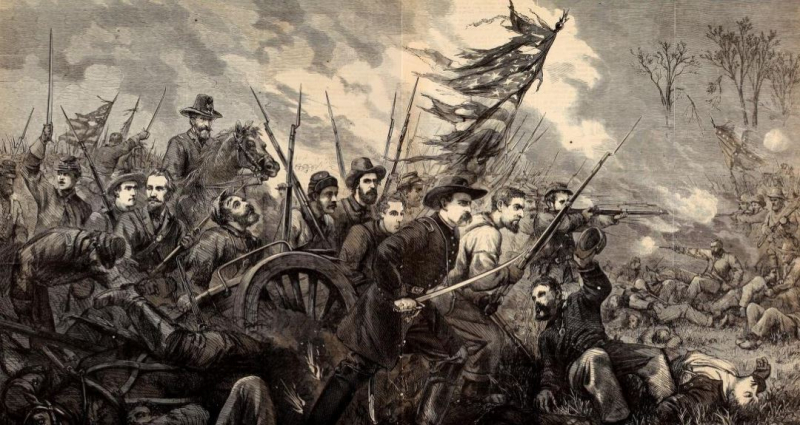Col. Edward Baker
Both Stone and McClellan blamed Colonel Edward Baker for the great loss of the Union. Col. Edward Baker, a U.S. Senator, decided to reinforce Devens, but with only four small boats available to transport men, Union reinforcements arrived slowly. Evans used the Federal delay to organize his men, and when Col. Baker was killed in the afternoon, Union resistance crumbled. This is considered an event that cannot fail to be mentioned in the list of facts about the Battle of Ball's Bluff.
When called before the Joint Committee on the Conduct of War, Stone testified that he had assigned Col. Edward Baker was responsible for deciding whether to send more troops across the river or withdraw those already there. By sending reinforcements, Stone argued that Colonel Baker chose to wage a battle. General McClellan was inclined to agree. After hearing Stone's version of events, McClellan publicly cleared Stone of all blame and announced in a military statement that the disaster was the fault of the Direct Commander. Although Stone and McClellan both testified that Baker mismanaged his orders during the battle, Stone remained a popular scapegoat for the battle's defeat. When Stone was called before the Joint Committee to deliver his version of the events at Ball's Bluff, Congress blamed the battle on Stone.









